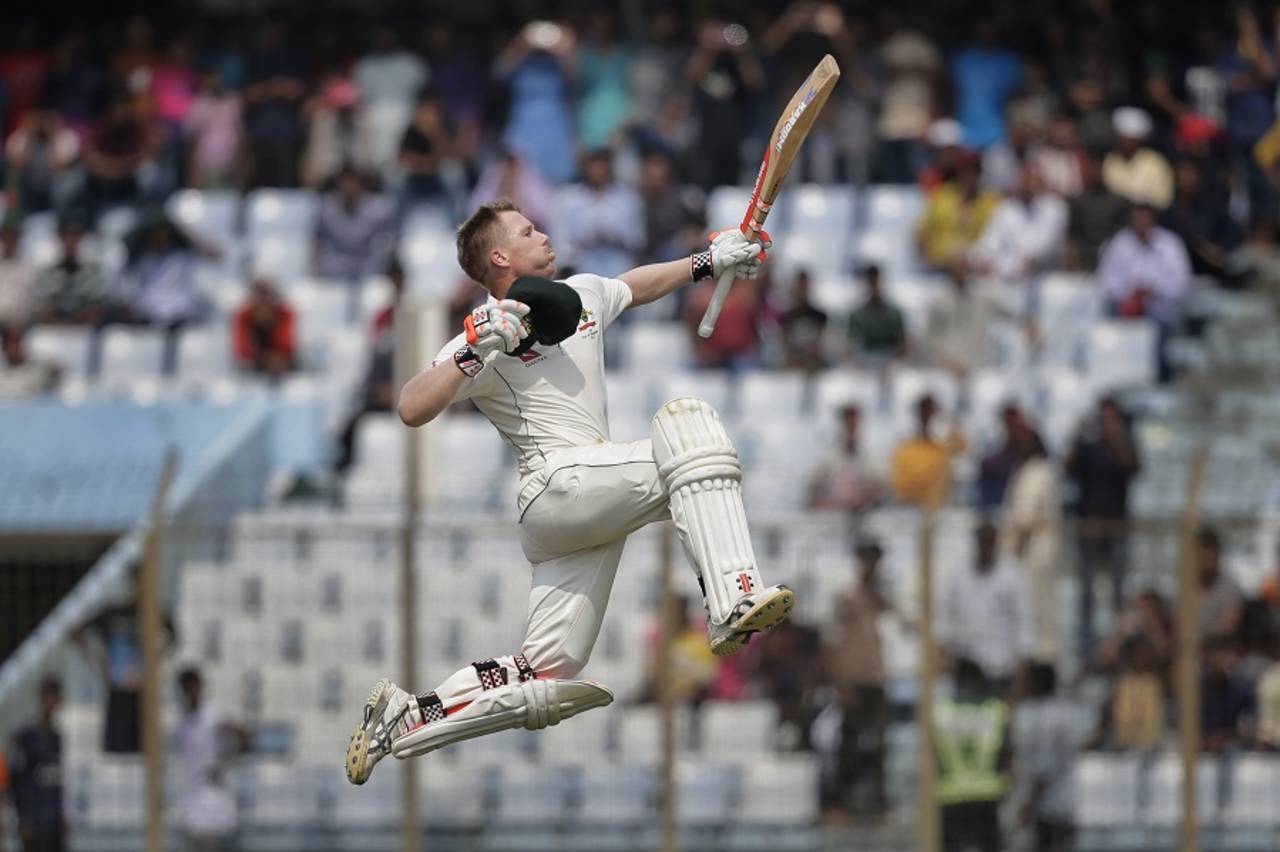Any conversation about which batsmen are currently top-rated in Test cricket begins with the Big Three; in
order of batting average that's
Steve Smith,
Joe Root and
Virat Kohli. It's often noted that New Zealand captain
Kane Williamson could easily make it a quartet. Indeed, Williamson should be included as his average is second only to Smith, but
David Warner ought to also be there, to extend it to a quintet.
The main reason for Warner's exclusion is his
record in India. It's not great, but then
Kohli's record in the UK is far worse, and the two players' overall average is only about five percentage points apart.
It's noticeable that on two tours of India, Warner regularly got starts but then lost his wicket. Admittedly he has got five single-figure scores, but in half of his 16 innings he got to double figures without scoring a half-century. On the three occasions he attained the half-century mark he wasn't able to convert to three figures. That is in sharp contrast to his
overall record, where he has converted 20 of his 123 Test innings into centuries.
However, his recent performance against Bangladesh - a bowling attack that doesn't match India's in class - provided good results in testing conditions. He scored back-to-back centuries, the
first one with the ball turning sharply and bouncing awkwardly. That hundred was scored in typically flamboyant Warner style; attacking the bowlers and reaching or clearing the boundary regularly. His next century,
in Chittagong, was his Dr Jekyll impersonation. He only got to the boundary seven times in an extremely patient innings that underlined the thought that goes into his batting.
I saw Warner bat in a
Champions League game on a slow, low Delhi pitch, where he tried to bash balls to the boundary. That method didn't work. In his
next innings on that same pitch, he placed the ball into gaps, relying on timing to score his runs, and looked much more at ease.
Warner is a batsman who thinks deeply about his task and just happens to be ultra-aggressive in his approach - one reason why he should always feature in any conversation about the best current batsmen is his approach to the game
His failure to score a Test century in India might be playing on his mind, but there's no reason he can't achieve success there - he has the skills. It's more just a case of him getting out when he's set, which can happen to any player. Most cricketers experience periods of drought in their career, and with the number of games being played now, it's a miracle if there's only one such.
Warner is a very skilful batsman and always has been. Early in his career the talk about him being a T20 hitter was misplaced. I first saw him bat on television in a T20 against South Africa. As he belted the likes of Dale Steyn around the park, I said to my wife, "This kid can bat."
She responded: "What, all the fours and sixes, you mean?"
"No," was my reply. "It's the way he's adjusted to good deliveries from Steyn."
It's fascinating to discuss batting with Warner. He commentated with Channel Nine in 2015, while his injured thumb repaired, and provided interesting insights into Australia's loss in the just completed Ashes series.He talked about Jimmy Anderson's and Stuart Broad's plans to dismiss him and the things he had done to try and overcome their tactics. He made sensible adjustments during the series.
It was obvious this wasn't a hitter who just trusted his eye and his luck; Warner is a batsman who thinks deeply about his task and just happens to be ultra-aggressive in his approach. That's one reason why he should always feature in any conversation about the best current batsmen: his approach to the game.
Opening is a demanding position and he is brave enough to take on new-ball bowlers in order to give his side an early advantage in the game. Succeeding with that approach deserves to put him among a list of the best batsmen. He's certainly the most watchable.
Now that he has experienced a breakthrough in Bangladeshi conditions, Warner's next tour of India might well provide a twist in the tale.
